Field Test: Nikwax Cleaning and Waterproofing Products
Randall Bonner 09.07.17
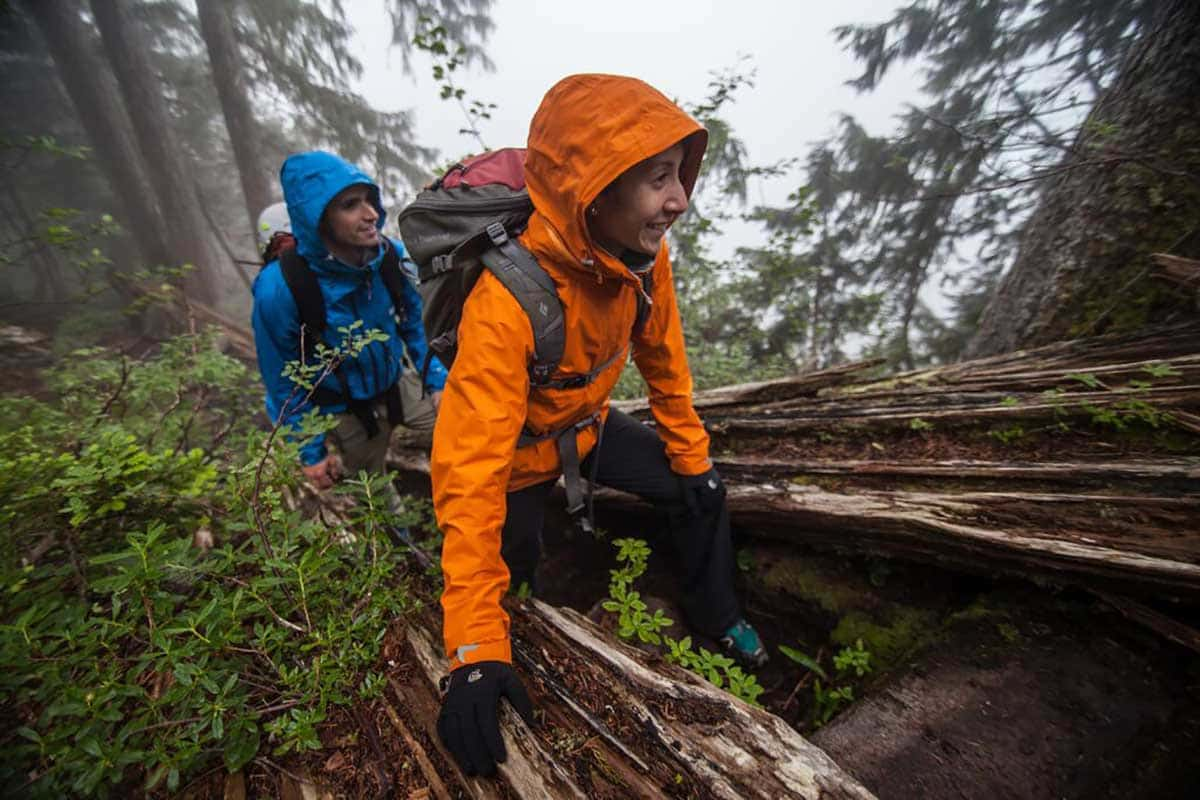
While most people dread the end of summer, it’s a different story for outdoor enthusiasts. Campers and hikers look forward to campfires and hoodie weather. Hunters look forward to tracking game and waking up to waterfowl. Fishermen, especially those in the Pacific Northwest, look forward to the rains that bring rising rivers, and with them, salmon and steelhead runs. We all want to be prepared when the first rain or cold snap hits, so now is the time to pull out your raingear and give it a once over.
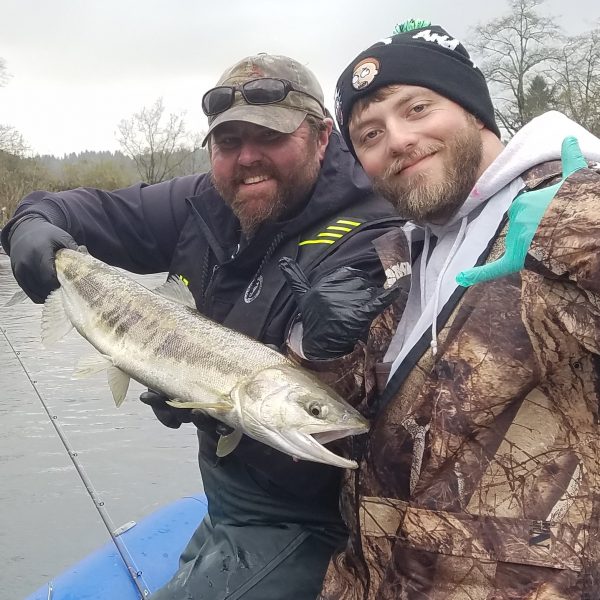
Waterproof gear isn’t cheap, but it’s worth the money to stay dry and comfortable. While you’re pulling out those old rain jackets, waders and bibs, you’ll be tempted to make use of what warranties you can, and maybe even toss a few items out that just don’t have the same life they used to when it came out of the box. If you really want to save a few bucks and extend the life of your gear, then consider reconditioning it yourself.
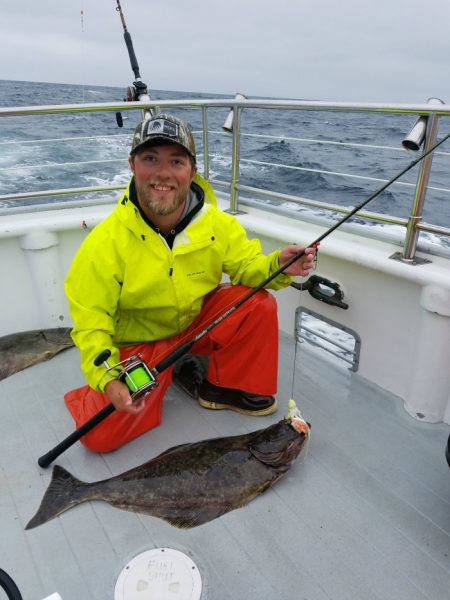
Last fall, I got to sample a line of Nikwax products for review, and I put my gear to the test through the winter. Their product line is specifically engineered for each type of material, from rain jackets and base layers to boots. While investing in each individual type of wash might be an investment, you’ll be able to preserve the life of your clothing and gear, rather than making new purchases every year to cover you from head to toe.
As we transition into changing seasons, preparing for the weather is all about layering. As you’re pulling out those synthetic-fiber base layers that have been in the back of the closet since early spring, you’re probably going to take notice of your own “brand.” Those poly fibers are extra stink-grabbin’ and you won’t be able to get rid of that lingering odor with your typical detergents.

The Nikwax Basewash revitalized base layers that I’d been using for several years. I also found it useful bringing back to life my fishing shirts and summer gear that had soaked in quite a bit of sweat and fish slime. The basewash is designed to remove and block odors, as well as revitalizing the breathability and wicking qualities of synthetic fibers to accelerate drying (see video below). There’s a specially designed wash for wool as well.
Although it’s tough to beat the repelling quality of rubber slickers, they’re heavy and bulky. I prefer a softshell when the weather permits, but the weather isn’t always predictable either. I have a soft-shelled fleece jacket that I probably wear more than anything else, and it does a satisfactory job during a light rain. At least it used to. That softshell got used and abused as my favorite jacket, and it needed to be washed often. The combination of the washing machine (along with commercial detergents) and the dryer quickly evaporated its water-repelling qualities (no pun intended). However, a healthy dose of the Spray-On Softshell Proof was like dipping it into a layer of wax. The jacket performed like it was brand new, all season. I’ve even pulled it out a few times recently, and it’s continued to perform a year later, after many washes.
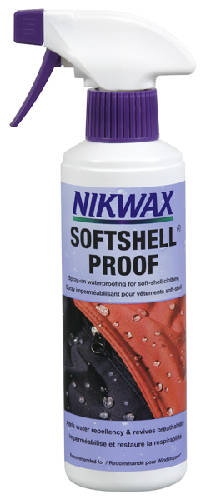
I was able to stretch one bottle to use on several jackets, and even if I must purchase a new bottle and recondition them again this year, it’s still significantly less expensive than purchasing new gear, and well worth the investment. For best performance, combine the use of their Tech Wash product to wash your softshell materials first, then coat them with the Softshell Proof. The application of the Softshell Proof does best when it’s applied to a clean surface, much like you would wax a car only after it’s been thoroughly washed.
The Tech Wash also works well in preparing your hardshell layers. Materials such as Gore-Tex are extremely durable and water repellent, but they will perform better with a little loving care. Using the Tech Wash for an initial wash, then doing a second round in the TX.Direct Wash-In Waterproofer will properly clean and recondition your hardshell materials. Removing any collected debris that could absorb water and dampen the outer layer will reduce the breathability, and cause the inner layer of your material to absorb sweat. Combining the two products will eliminate residual debris and improve the breathability of your hardshell layers, reducing sweat issues with your bibs, waders and rain jackets.
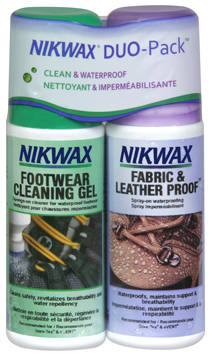
In similar circumstances, properly cleaning your boots will improve your ability to recondition and waterproof them. Using the Nikwax Cleaning Gel and Fabric & Leather Proof products in unison will allow you to do just that. The cleaning gel has a special applicator that will remove any stuck-on grime with a little elbow grease, and the Fabric & Leather Proof will improve water-repelling qualities, as well as adding additional protection to the seams.
Best of all, Nikwax products are environmentally safe. Nikwax is celebrating its 40th year of operation by carbon balancing the entirety of its operations since 1977. A decade ago, Nikwax started working with World Land Trust to offset its annual emissions, as well as offsetting its emissions since inception.
“We recognize that climate change is going to be one of the greatest challenges for future generations,” said Nikwax founder, Nick Brown. “It is already destabilizing the outdoor industry, influencing snow and rainfall, and bringing extreme and unpredictable weather. We decided 10 years ago to balance the carbon emissions coming from our manufacturing and operational processes by restoring forest cover in partnership with World Land Trust. By restoring forests, the trees capture the CO2 we emit, while also providing protection for endangered species and promoting bio-diversity. By the end of 2017, our operations will have been carbon balanced for 40 years.”

